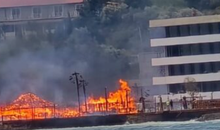
 Flash News
Flash News
Fight in Durrës cemetery, father and son injured
A woman dies in an accident in Tapiza, the 33-year-old driver is in custody
Last night she escaped the assassination attempt/ Who is Katerina Beqo, the woman who was in the car with her little son when her husband was executed (Event)
Suspected of being used in the murder of Gjovalin Prendit, a vehicle is found burned in Fushë Gjormë
"Albania couldn't hold on", Lara Colturi chooses Italy for her career
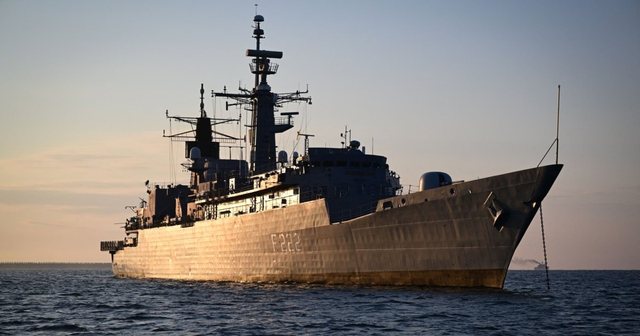
Military leaders from several countries are holding talks this week at the Turkish navy headquarters in Ankara, focused on security in the Black Sea in the event of a ceasefire agreement between Russia and Ukraine.
The meetings come days after two European diplomatic sources told Radio Free Europe that Turkey has declared its readiness to "take responsibility for the maritime dimension" of a multinational military deployment in Ukraine.
There are practical reasons for Turkey to do so. A 1936 convention places strict limits on the tonnage that naval fleets can deploy in the Black Sea and how long they can stay there. This makes Turkey, which has one of NATO's most powerful militaries, the natural major player in the region.
For example, Turkey has 17 frigates, compared to three for Romania's navy.
"I think it's impossible to solve this without Turkey being on the side of the Europeans," said Sam Greene of the Center for European Policy Analysis (CEPA) at a recent conference.
British and French ships are also expected to patrol the Black Sea, on a rotational basis, as part of a security or peacekeeping force. But while this ground force is being discussed by the “coalition of the willing,” the naval mission could depend on a “guarantee from the United States.”
According to the Center for Strategic and International Studies (CSIS), this would include intelligence, surveillance, ground and air surveillance. Although, as CSIS said, US Navy ships do regularly patrol the Black Sea and could therefore play a role.
In this sense, a mission in the Black Sea would take place under different conditions than a land mission – as NATO already has a consolidated presence there through regular multinational exercises.
In fact, NATO has just completed exercises involving naval forces from 12 countries, including Turkey, the US, Britain and Romania. Over the course of 12 days, the forces simulated responses to hybrid, naval and air attacks in the region.
Maritime patrols would focus on various missions, such as ensuring freedom of navigation for commercial merchant ships (including grain exports from Ukraine), monitoring ceasefire implementation, and then demining.
Andriy Ryzhenko, a captain in the Ukrainian navy reserves, told Radio Free Europe's Current Time that "many ports are currently completely blocked" due to mines.
"They are in Mykolaiv, Pchalkiv, Kherson. The other ports are officially open, but with restrictions... the mines need to be found and neutralized," he said.
Unlike the land war, Ukraine feels it is winning or has already won the war at sea. A series of spectacular attacks that sank many Russian ships have forced the numerically larger Russian fleet to abandon its bases in occupied Crimea and return to Novorossiysk.
"Ukraine has won at sea and now has a complete advantage. This means that it does not allow the enemy to approach its shores and ensures the passage of civilian ships," Oleksiy Neizhpapa, the head of the Ukrainian navy, told Radio Free Europe on April 8.
"But the enemy has capabilities, has weapons and can strike civilian objects, civilian ships directly in ports or at sea. Therefore, of course, there continues to be a risk."
This was clearly demonstrated by the attacks carried out by Russia on Odessa on April 16. Ryzhenko also stressed that navigation in the Black Sea is not taking place through the routes that were used before the war, saying that these sea routes must be restored.
"It should be possible to sail directly from Odessa towards the Bosphorus through the middle of the Black Sea, and not by hiding in the territorial waters of neighboring countries," he said.
Ryzhenko added that the talks in Ankara will focus on precisely these details. The talks were made public by the Turkish Defense Ministry on April 13, but officials did not say which countries were participating.
It was later reported that NATO members Bulgaria and Romania would be included in the meetings, along with Georgia. On April 15, the British Ministry of Defense told Radio Free Europe/Radio Liberty that it would join the meetings, before Ukrainian President Volodymyr Zelensky revealed that Ukraine and France were also participating.
"We are talking about the presence of a contingent at sea, and we believe that Turkey can have a serious role in future security guarantees for the sea," Zelensky said.
"This is not about ending the war, but about what will happen after the ceasefire, security guarantees," he added.
As in previous discussions about a ground contingent, the United States is not involved in these talks./ REL
Latest news


Fevziu: Veliaj's arrest gave the left a 'friend' on the eve of the campaign
2025-04-18 22:42:43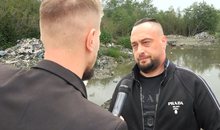
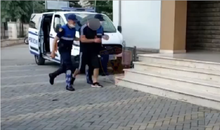
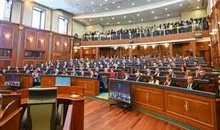
Swearing-in of MPs in Kosovo uncertain even on Saturday
2025-04-18 21:56:16
Find out what are the most aggressive zodiac signs who can't hold their nerve?
2025-04-18 21:32:47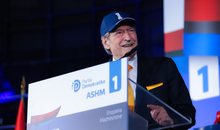
Berisha: Rakip Veliaj has set up the same scheme as 5D
2025-04-18 21:12:04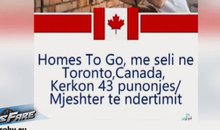
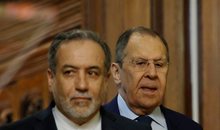
Iranian Foreign Minister seeks Russia's support in nuclear talks
2025-04-18 20:42:52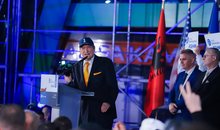

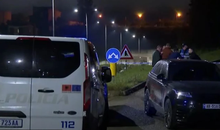

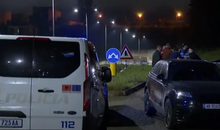


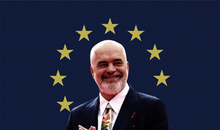
The speech that aims for the European passport, but not for drinking water
2025-04-18 18:58:15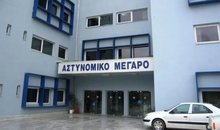
33-year-old Albanian dies in Greek detention
2025-04-18 18:33:45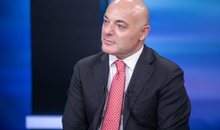
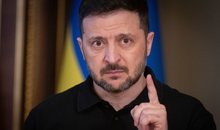
Zelensky accuses US envoy Witkoff of spreading Russian narratives
2025-04-18 18:08:33


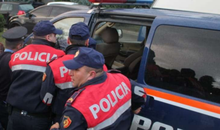
Fight in Durrës cemetery, father and son injured
2025-04-18 16:58:31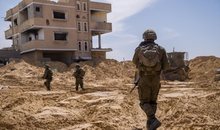
Israeli strikes kill at least 17 people in Gaza
2025-04-18 16:29:04
A woman dies in an accident in Tapiza, the 33-year-old driver is in custody
2025-04-18 16:26:04
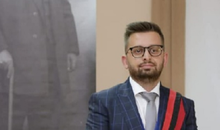

EU: It is essential for Kosovo to quickly form a new government
2025-04-18 15:53:40
Two Albanians sentenced to 18 years in prison for raping English woman
2025-04-18 15:44:34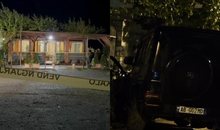

How to prepare your skin for a perfect tan this summer?
2025-04-18 15:16:02
Dritan Rexhepi refuses to testify about the kidnapping of Jan Prenga
2025-04-18 14:59:18

Abuse of "SASPAC" funds/ GJKKO postpones hearing against Ilir Beqaj
2025-04-18 14:38:26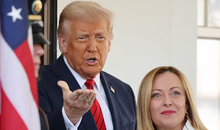
Meloni in Washington, Trump: We will have an agreement with the EU
2025-04-18 14:22:16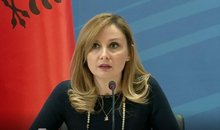
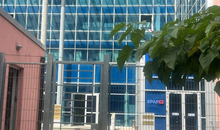
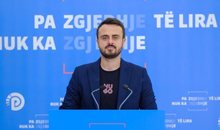


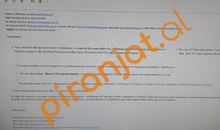
Piranha Investigation/We consumed milk with aflatoxin
2025-04-18 13:06:16
Letter to first-time voters!
2025-04-18 12:56:06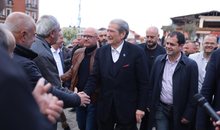
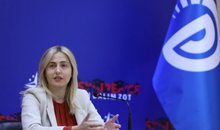
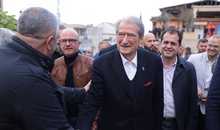
Berisha: A judge ordered SKAP to investigate Rama for the villa in Surrel
2025-04-18 12:20:51
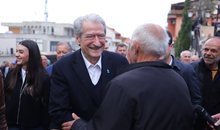

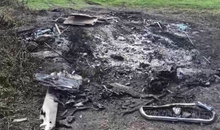


BKH agents attacked, Fier court leaves Agron Kapllanaj's grandchildren in prison
2025-04-18 11:22:14
"Albania couldn't hold on", Lara Colturi chooses Italy for her career
2025-04-18 11:10:50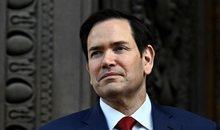
Rubio: We will withdraw from Russia-Ukraine peace deal if there is no progress
2025-04-18 10:58:18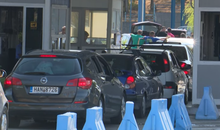

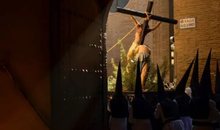
Beyond the horizon, life goes on! Black Friday and Easter
2025-04-18 10:31:31

VIDEO/ Diaspora vote, Albanian shows the middle finger to the SP
2025-04-18 10:10:47
Ajola Xoxa appears before SPAK, implements the "compulsory appearance" measure
2025-04-18 09:58:34
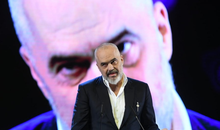
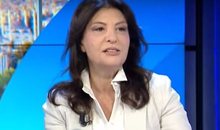
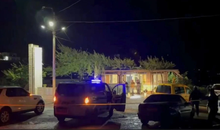
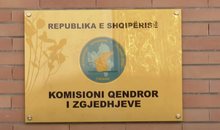

Foreign exchange, April 18, 2025
2025-04-18 08:58:05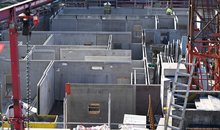
Germany needs construction workers
2025-04-18 08:55:05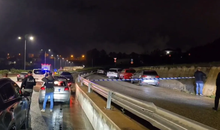


Horoscope, what do the stars have in store for you today?
2025-04-18 08:23:30
Temperatures reach up to 24 degrees, weather forecast
2025-04-18 08:08:21
Posta e mëngjesit/ Me 2 rreshta: Çfarë pati rëndësi dje në Shqipëri
2025-04-18 07:52:20

Assassination in Tirana, police react: 4 injured in Trauma, two of them minors
2025-04-17 22:34:30
Gunfire in Tirana, 4 people injured
2025-04-17 22:16:15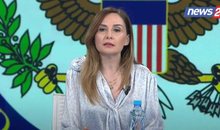

Tirana Incinerator, Lala: Officials were punished as if they stole a chicken
2025-04-17 21:50:29
Wealth Zodiac: Who has the money magnet?
2025-04-17 21:47:18
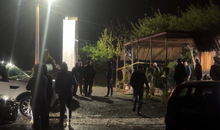
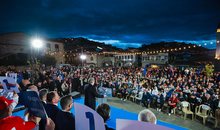
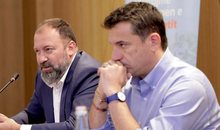


Assassinations in Lezha Plain, Roan Brahimi's father is killed
2025-04-17 20:29:59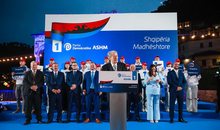
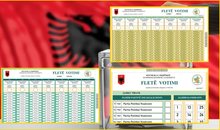
The first 600 ballots from the diaspora arrive in Albania
2025-04-17 19:52:59
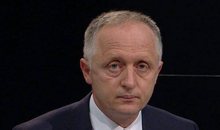
Farmers who make BÉ-eee and farmers of the EU!
2025-04-17 19:30:47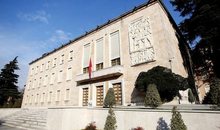

Tobacco: 0% tax for freelancers, PD with a clear plan for the middle class
2025-04-17 19:07:05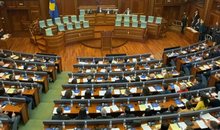
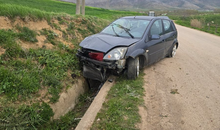
Car hits 9-year-old child in Pogradec
2025-04-17 18:42:15
Alizoti accuses SPAK: It has failed in supervising the elections
2025-04-17 18:31:42
Mental health alert: Work without limits, mind under pressure
2025-04-17 18:09:04
Two vehicles collide, 29-year-old dies in Tirana
2025-04-17 18:01:45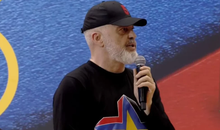
Rama from Dibra: Half of Albanian men are syrians, the rest vote for the DP!
2025-04-17 17:55:58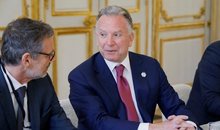
Top Ukrainian, European and American leaders meet in Paris
2025-04-17 17:45:35
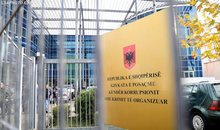
"Metamorphosis", the Court takes time on the way to judge the defendants
2025-04-17 17:24:50